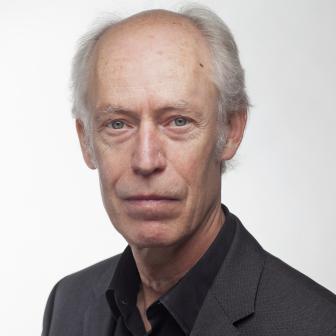Article
Self – Pieter Boskma
Self – Pieter Boskma

November 10, 2015
The jury concludes that Self shows that ‘Poetry may offer more truth than life itself. Poetry is more real than reality, Boskma seems to suggest.’
‘Arousing self-portrait’, ‘Self-portrait as element’ and ‘Self-portrait as a dirty old man’ are available here in English translation by Donald Gardner.
Pieter Boskma’s Zelf (Self) is a written history of loss, mourning and progression. After the death of his wife, Boskma materialized his sorrow in books such as Doodsbloei (Death blossom) and Mensenhand (Human hand). With his most recent book, Boskma attempts to move forward without forgetting his loss. By analyzing and deconstructing himself through 39 poetic self-portraits, the poet examines his memories, sadness, love, and lust for love.
According to this year’s jury report, ‘[Boskma] uses ancient wisdoms that are contained by classical genres such as the eulogy and the epic poem. He uses abrupt changes of rhythm and tropes to show the artificiality of the notion of the self. This process of becoming has a healing effect on the poet, although the end of mourning coincides with a parting with the self that was loved by his wife. What remains is a ‘projected’ or poetic self that is fluid, but moves with an “in itself enclosed going of beauty and completion”. These poems are continuously looking forward, they are looking for a road that comes after the past’. The jury concludes that Self shows that ‘Poetry may offer more truth than life itself. Poetry is more real than reality, Boskma seems to suggest.’
‘Arousing self-portrait’, ‘Self-portrait as element’ and ‘Self-portrait as a dirty old man’ are available here in English translation by Donald Gardner.
Translator: Lodewijk Verduin
Sponsors












Partners
LantarenVenster – Verhalenhuis Belvédère

